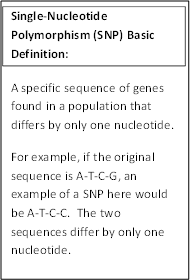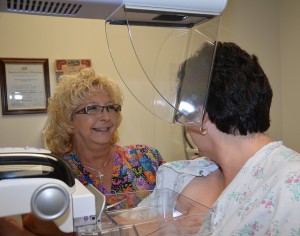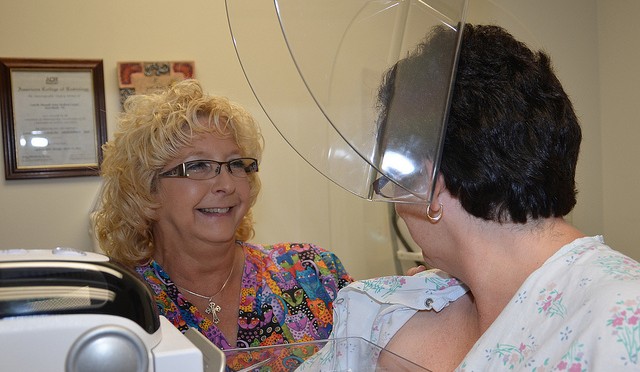In addition to environmental factors, there are known genetic causes for breast cancer risk in women. Specifically, single-nucleotide polymorphisms (SNPs) found on certain genes has been shown to be associated with breast cancer risk.
 Some research has shown that folate in the diet may interact with specific SNPs on genes associated with breast cancer risk. Typical Mediterranean diet patterns are relatively high in folate, leading to past research showing possible relationships between Mediterranean diet adherence and reduced breast cancer risk in women.
Some research has shown that folate in the diet may interact with specific SNPs on genes associated with breast cancer risk. Typical Mediterranean diet patterns are relatively high in folate, leading to past research showing possible relationships between Mediterranean diet adherence and reduced breast cancer risk in women.
Specific genes on which SNPS have been shown to interact with dietary folates are the MTHFR (rs180133 and rs1801131) and the MTR (rs1805087) genes.
A new study published in the journal Genes & Nutrition aimed to further investigate whether or not specific SNPs on the aforementioned genes affect the observed benefit of eating a Mediterranean diet on breast cancer risk. In other words, do sequence changes on these genes reduce or increase breast cancer risk in women adhering to a Mediterranean diet?
1,109 women with breast cancer from Cyprus were recruited for this study. Dietary information was collected via questionnaires.
All participants were genotyped for the MTHFR and MTR genes, which would basically provide the researchers with the specific DNA sequence and therefore specific SNP sequences of those genes.
Important Findings:
- High adherence to the Mediterranean diet:
- Decreased breast cancer risk in women who had increasing numbers of variants of rs180133 SNPs on the MTHFR gene.
- Decreased breast cancer risk in women who had at least one variant of rs1805087 SNP on the MTR gene.
- Decreased breast cancer risk in women who had the rs1801131 SNP on the MTHFR gene.
The results of this study indicate that Cyprus women with certain genotypes (gene sequences) had a reduced risk of breast cancer if they adhered strictly to the Mediterranean diet.

What may be happening here is that the folate obtained from the Mediterranean diet interacts better with certain genotypes than others, resulting in a reduced risk of breast cancer.
More research needs to be done to get a better understanding of the mechanisms behind these relationships, but the results seem to indicate that women with certain genes seem to be better protected from breast cancer if they eat a Mediterranean diet than women who eat a diet with lower folate levels.
Source:

